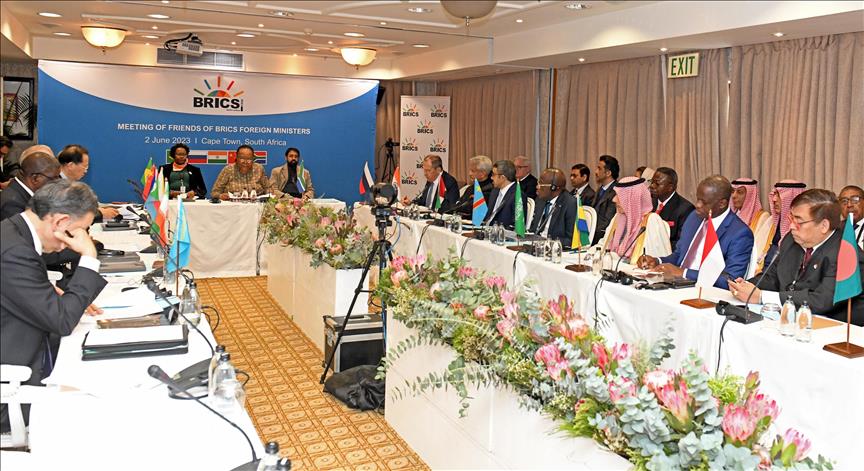BRICS offers an alternative way for developing nations to challenge Western dominance that patronizes African nations for a global world order they hope to establish, according to experts who attended the recent Russia-Africa summit in Saint Petersburg.
BRICS, an acronym for the bloc of emerging economies including Brazil, Russia, India, China and South Africa, has frequently made headlines, attracting applications from numerous countries.
Yonas Adaye Adeto, the director of the Institute for Peace and Security Studies (IPSS) at Addis Ababa University, told Anadolu that the bloc seeks a multipolar world, challenging the globalization system created by the European Union (EU) and International Monetary Fund (IMF).
"They impose everything, saying go this way only, but BRICS gives an alternative way for the world, another way economically and culturally," Adeto said.
According to Worlddata, a total of 3.27 billion people live in the five BRICS member countries, representing 41.13% of the world's population. The group laid its foundations in 2009, with South Africa joining in 2010, and since then, some 40 countries have inquired about joining as the bloc gears up for a summit in August.
Like other emerging economies, Russia has often expressed dissatisfaction with the global economic and financial system, with Russian President Vladimir Putin outspokenly voicing his desire to shift the balance of global economic power.
Western states, meanwhile, have imposed several sanctions targeting the Russian finance system and hydrocarbon exports to axe Moscow’s war budget despite their dependence on Russian oil and gas.
According to Adeto, the sanctions applied by European countries on Russia have only garnered support for Russia, a nation that has strong social and cultural ties with the African continent that go back thousands of years.
Bilateral relations between Russia and Africa have always been a win-win scenario in which both parties have benefited, compared to the Europe-Africa relationship, which has been based on either the brutality of slavery or colonialism, he explained.
According to Natalia Eremina, a political science expert at Saint Petersburg State University, another key member of the BRICS, China, is also becoming a huge investor and creditor in Africa in areas like agriculture, defense, health economics and trade.
Furthermore, she asserts that the BRICS Development Bank, a multilateral development bank founded by the BRICS countries, might serve as a replacement for the IMF and the World Bank in many circumstances due to its success in financing and making money in Africa.
By Oguzhan Ozsoy in Saint Petersburg
Anadolu Agency
energy@aa.com.tr


